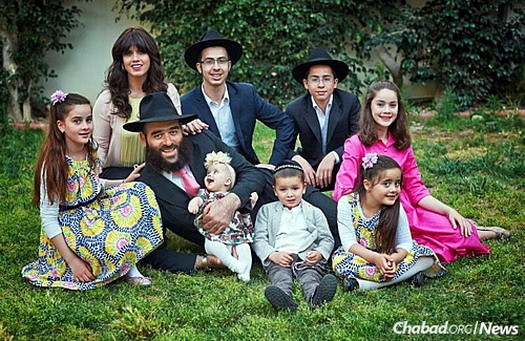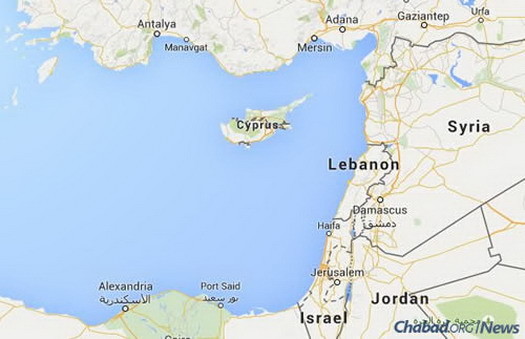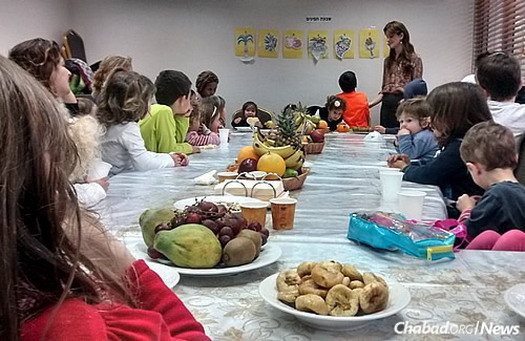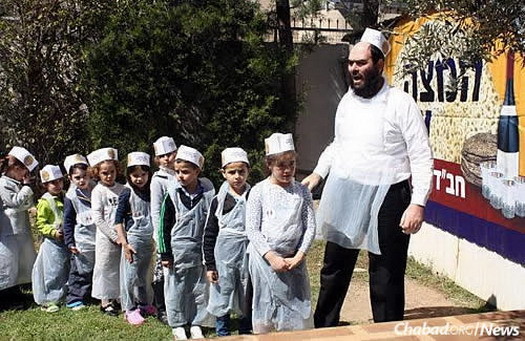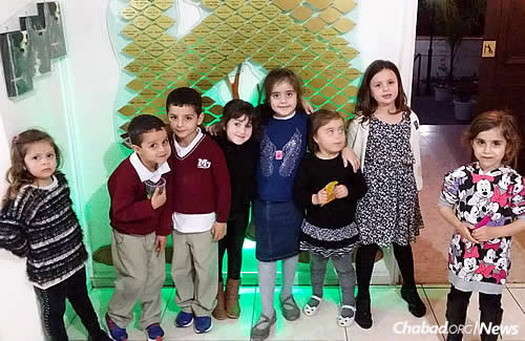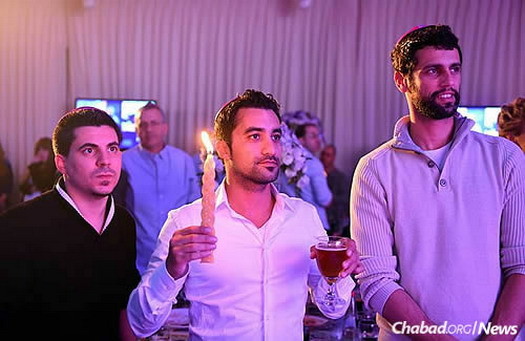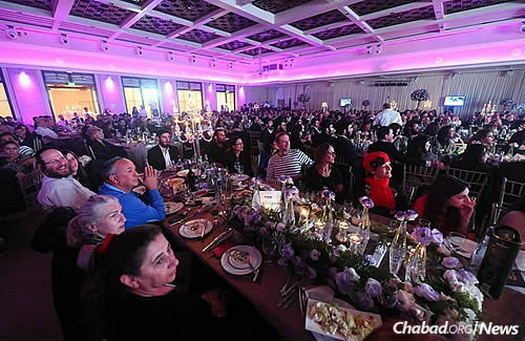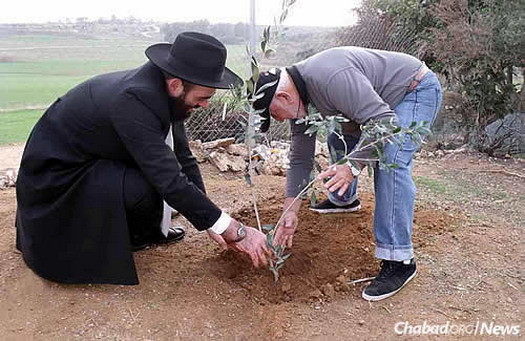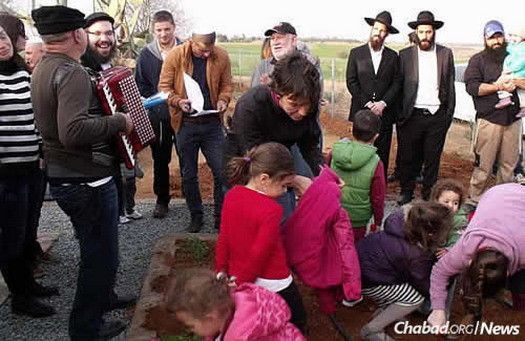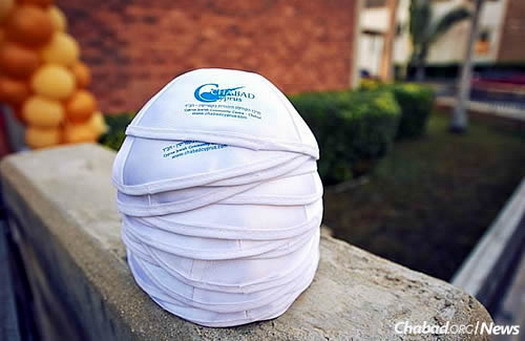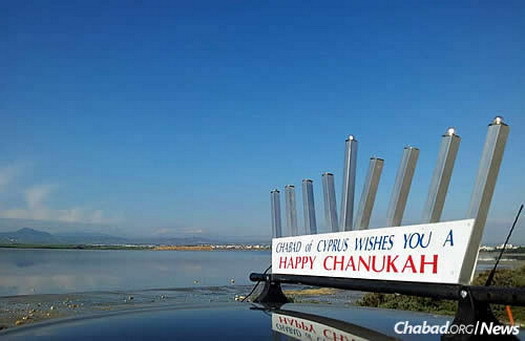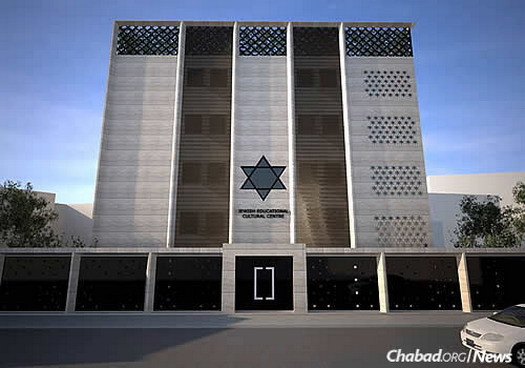
New Center to Give Added Jewish Glow to Cyprus’ Mediterranean Beauty
Cyprus brings to mind many visuals, in addition to the sandy terrain and lush greenery evocative of Mediterranean islands.
Those of a certain age look past the landscape to an older image—of Jewish refugees detained in Displaced Persons camps behind barbed wire following World War II, and an ensuing exodus from Europe and towards what was then British Mandate Palestine. From 1946 to 1948, the British confined more than 50,000 Jewish refugees on the island. After 1948, most of them made it to Israel, but during their time there, more than 2,000 Jewish babies were born in tent-camps.
For contemporary Israelis, Cyprus represents something different altogether—a neighboring nation visited mainly by young vacationers, as well as home to families who have relocated there for business or as diplomatic representatives. Although the majority of the community the Chabad House serves consists of Israelis, it is not exclusively so; several British expatriates and their families are part of the community.
Cyprus is the third-largest and third most populous island in the Mediterranean, after Sicily and Sardinia in Italy.
When Chabad-Lubavitch emissaries Rabbi Arie Zeev and Shaindel Raskin arrived in Larnaca, Cyprus, with their four children in 2003 (they now have seven children), they found a Jewish community consisting of about 350 to 400 families, including many seniors who lived with their adult children. They recognized the potential for both the physical and spiritual growth of the community, in addition to the need to accommodate not only those who were already living there, but generations to come.
The Raskins were struck by the range of the residents—from those far removed from their Jewish roots to those who continued to congregate for Shabbat prayers. Only 20 percent of the Jews on the island, according to the Chabad couple, were affiliated with any type of Jewish organization.
“There were not even the ruins of an ancient synagogue for them here,” says the rabbi. “In order to congregate for prayers, the elders of the community were still doing what they had been doing for years—finding a private home to host prayer services and bringing the Torah scrolls there from which to read the weekly portion. Today, we have daily prayers and are able to provide minyans every day for people to attend.”
Shaindel Raskin adds that “one of the very first things we did when we arrived here was to establish a kindergarten. We needed to have an educational framework for our children. But the demand soon grew as couples also wanted their children to come to the Chabad school and receive a Jewish education as part of their upbringing. So we immediately were able to see that it would not be long before we would need more space than the cramped quarters we had.”
Irit Avni, who came to live in Cyprus with her husband and family about five years ago for his business, says she was amazed by how the Raskins welcomed them with open arms.
“I come from a background a bit more Torah-observant than my husband,” she says. “The Raskins made us feel at home and took such great pains to see we had everything we needed—no matter what or when. In time, my husband started to enjoy coming to the Torah lessons and to shul more, and today, he davens [prays] three times a day. The community here has enriched our lives.”
More Room for All
The Raskins began to formulate a plan to build a complex large enough to serve the population and its multifarious needs. This would prove a better alternative to renting smaller spaces all over town, which was a stopgap measure; thus, the concept of constructing the Jewish Educational Culture Center was born.
The JECC, though conceived a while ago, just recently passed to the next step. The first challenge was to obtain the building they wanted, followed by a bout of red tape associated with zoning laws (the new building lay in a residential area). Still, the sale went through and now comes an equally challenging aspect: funding the renovations.
The rather ambitious project will cost in the area of €1,900,000 (approximately $2 million). At present, about one-fifth of the funds needed have been raised.
“Right now, the synagogue is located in the same building as our home,” says the rabbi, “and people are sometimes hesitant to knock at the door to go and daven for fear that they will be bothering the family. With the new center, we will be able offer daily, Shabbat and holiday services where worshippers can feel free to come to pray at will.”
Currently, Kiddush is provided on Friday nights and on Shabbat after morning prayers, explains Shaindel Raskin, but the new center will be able to accommodate the 100-plus guests much more comfortably. During the summer—when Israeli, British, Russian and American tourists arrive in droves—the numbers swell, and the need for more space becomes even more apparent.
Also on tap is sufficient space for celebrations like bar and bat mitzvahs; communal events and holiday programs; classes; Talmud and Torah study for different age groups; a personal counseling center and more—all in a central location.
The Raskins already provide bar and bat mitzvah preparation, teen and youth programs, the kindergarten for children under 4, Hebrew classes for those under 12, and Hebrew school for all ages and levels. A Sunday school takes place once a month to introduce and instill Jewish values and tradition in the younger set. Shaindel Raskin adds that they also deliver challah weekly to businesses and private homes.
“Our primary goal is to improve the quality of Jewish life for every Jew in Cyprus,” says Rabbi Raskin. “The moral values and rich traditions that Judaism has to offer are things that no Jew should be deprived of.”
Growing Across the Island
On Sept. 12, 2005, Raskin was named the official rabbi of Cyprus at the dedication ceremony of the Chabad House. Afterwards, the crowd moved outside, where supporters laid the foundation stone for the new mikvah, a welcome development for the local families who were currently making use of the Mediterranean for such purposes.
Guests included Rabbi Moshe Kotlarsky, vice chairman of Merkos L’Inyonei Chinuch, the educational arm of the Chabad-Lubavitch movement; Tzvi Cohen, Israeli ambassador to Cyprus; Cypriot Education and Culture Minister Pefkois Georgiades; and Larnaca Deputy Mayor Alexis Michaelides; in addition to other government members, politicians, diplomats and community members.
By 2006, the building of Mikva Mei Menachem was completed, and the Cyprus International Jewish School opened. In addition to the Chabad Houses in Larnaca, and Kyrenia in the island’s north, there is a summer center in Ayia Napa, a resort at the far eastern end of the southern coast. Other projects in the works include a kosher market.
As the Jewish communities on the Isle of Cyprus have come back to life in the past decade, a need arose in nearby Limassol, less than an hour away by car, to serve the Jewish business community, Israelis, native-born Jews and Jewish tourists there.
The Limassol Chabad House—“a Jewish home for all,” stresses Raskin—serves as a meeting place to have coffee, conversation and a Torah class. The site supplies Jewish services required by the local community: kosher food, a synagogue, Torah classes, joint Shabbat meals, and an attentive ear for guidance and direction in all things Jewish.
“Our family came here eight years ago after spending time in London for my husband’s business, and we were always surrounded by Jewish community there, where we could participate to the degree which we wanted to,” explains Tamara Berger, who resides with her family in Limassol. “When we arrived, we were alone. The way the rabbi and his wife welcomed us—and still give their all—has been a most loving and heart-warming experience. They are never judgmental, and only show their love and acceptance of a fellow Jews.”
“The Raskins have not only been our advocates and our mentors, but our friends,” she continues. “There is nothing too little or unimportant in their eyes when it comes to helping others. They remind me of a story I once heard about Rabbi Akiva—that when asked to explain the Torah in one sentence, he said: ‘Love thy fellow [Jew] as thyself.’ ”
